#!/usr/bin/env python
# coding: utf-8
#
# Introduction to the Scikit-HEP project
#
# ### **Motivation, really quickly**
#
# As discussed earlier, the scientific Python ecosystem can be organised, schematically, as a layered set of libraries and packages ever more specialised, from foundational and key libraries such as NumPy, Pandas and matplotlib, to domain-specific projects:
# 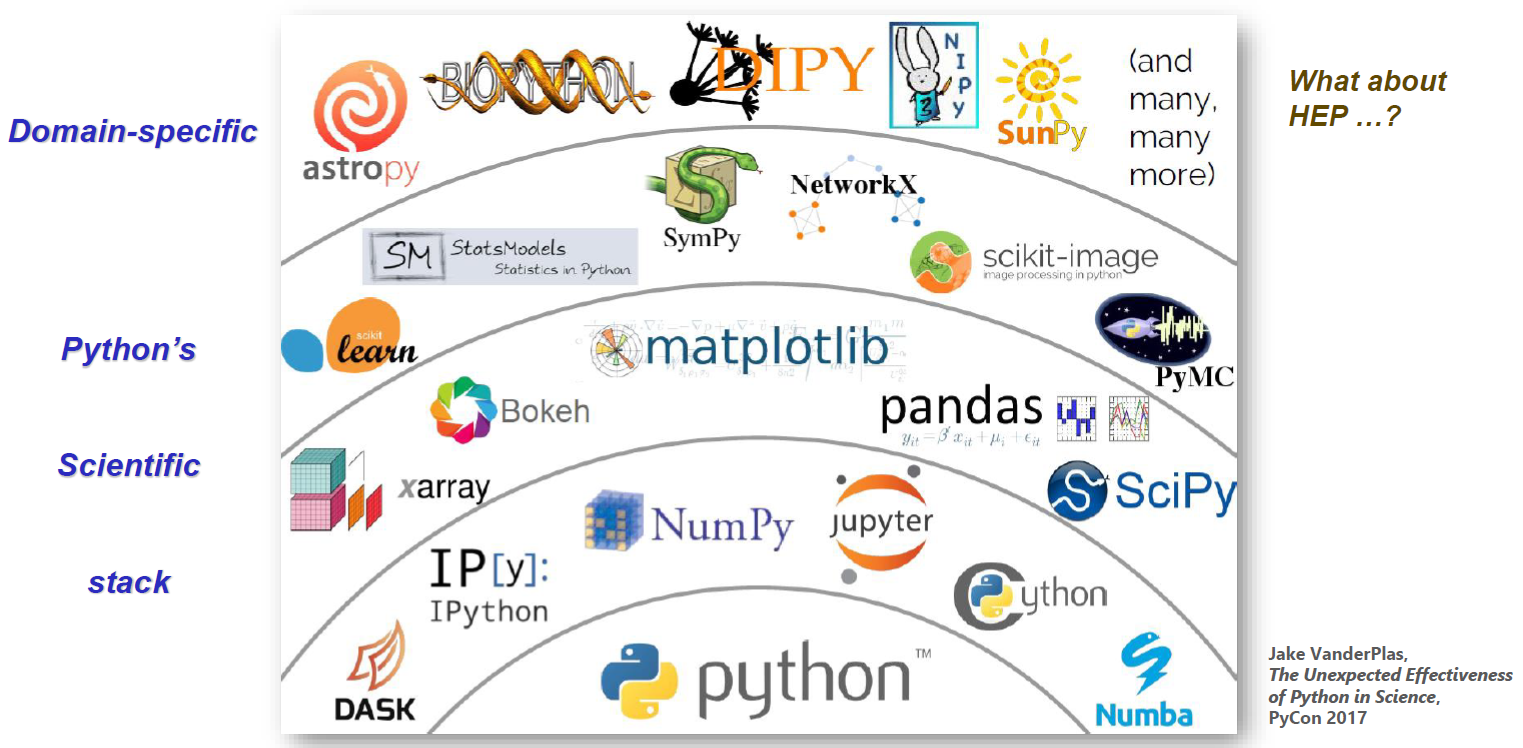 # At the time this popular slide was prepared and presented (2017), one could ask itself where the HEP domain-specific projects were. Scikit-HEP came to "fill the gap" for Particle Physics just about that time (Autumn 2016). (Others did the same, later on, as seen in the introduction notebook.)
# ### **The grand picture**
#
# The [Scikit-HEP project](https://scikit-hep.org) has had from the onset clearly-defined goals, and it cherishes a few core values:
#
# At the time this popular slide was prepared and presented (2017), one could ask itself where the HEP domain-specific projects were. Scikit-HEP came to "fill the gap" for Particle Physics just about that time (Autumn 2016). (Others did the same, later on, as seen in the introduction notebook.)
# ### **The grand picture**
#
# The [Scikit-HEP project](https://scikit-hep.org) has had from the onset clearly-defined goals, and it cherishes a few core values:
# 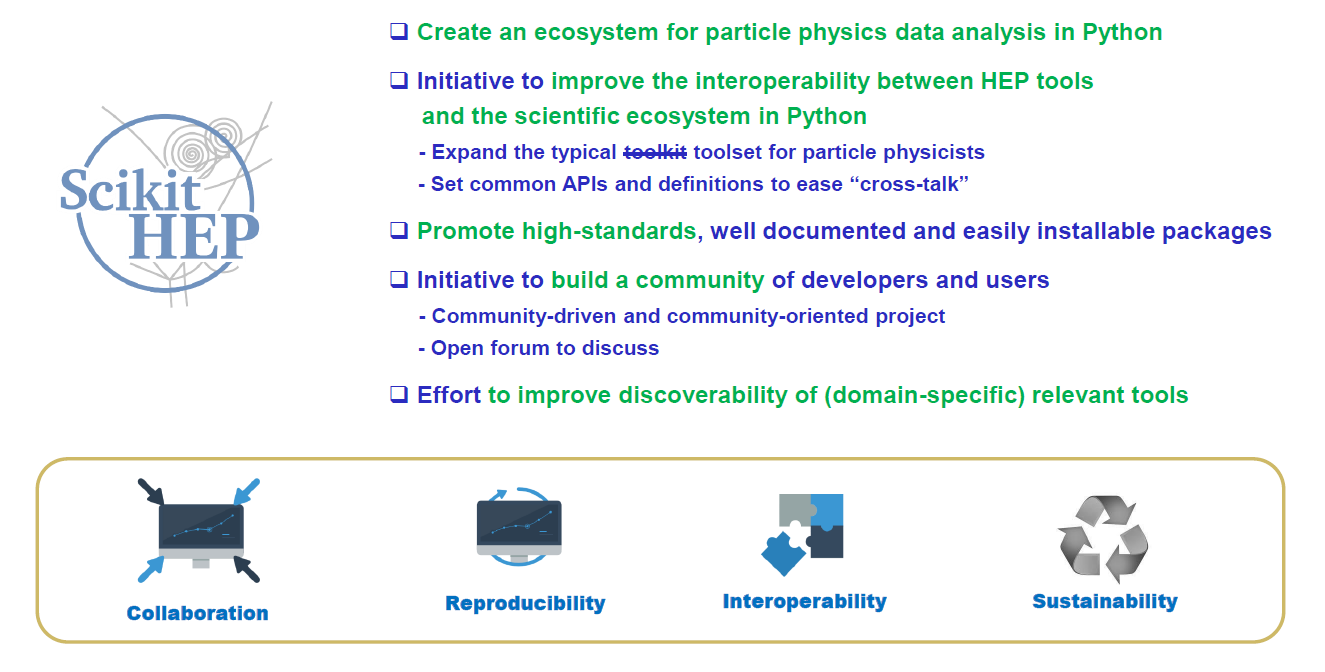 # As a result, the tools showcased here aim to make it easy and Pythonic to perform HEP analysis in the scientific Python ecosystem.
# ### **Project topics and packages**
#
# Very many topics are addressed within the project!
# - Data manipulation and interoperability
# - Data aggregation and histogramming
# - Modeling and fitting
# - Statistics
# - Visualisation
# - HEP-specific utilities e.g. to deal with particles and decays
# - Simulation
# - Interoperability with HEP-specific libraries
# Here is an overview of the Scikit-HEP packages that are most popular and/or most actively used and maintained:
#
# As a result, the tools showcased here aim to make it easy and Pythonic to perform HEP analysis in the scientific Python ecosystem.
# ### **Project topics and packages**
#
# Very many topics are addressed within the project!
# - Data manipulation and interoperability
# - Data aggregation and histogramming
# - Modeling and fitting
# - Statistics
# - Visualisation
# - HEP-specific utilities e.g. to deal with particles and decays
# - Simulation
# - Interoperability with HEP-specific libraries
# Here is an overview of the Scikit-HEP packages that are most popular and/or most actively used and maintained:
# 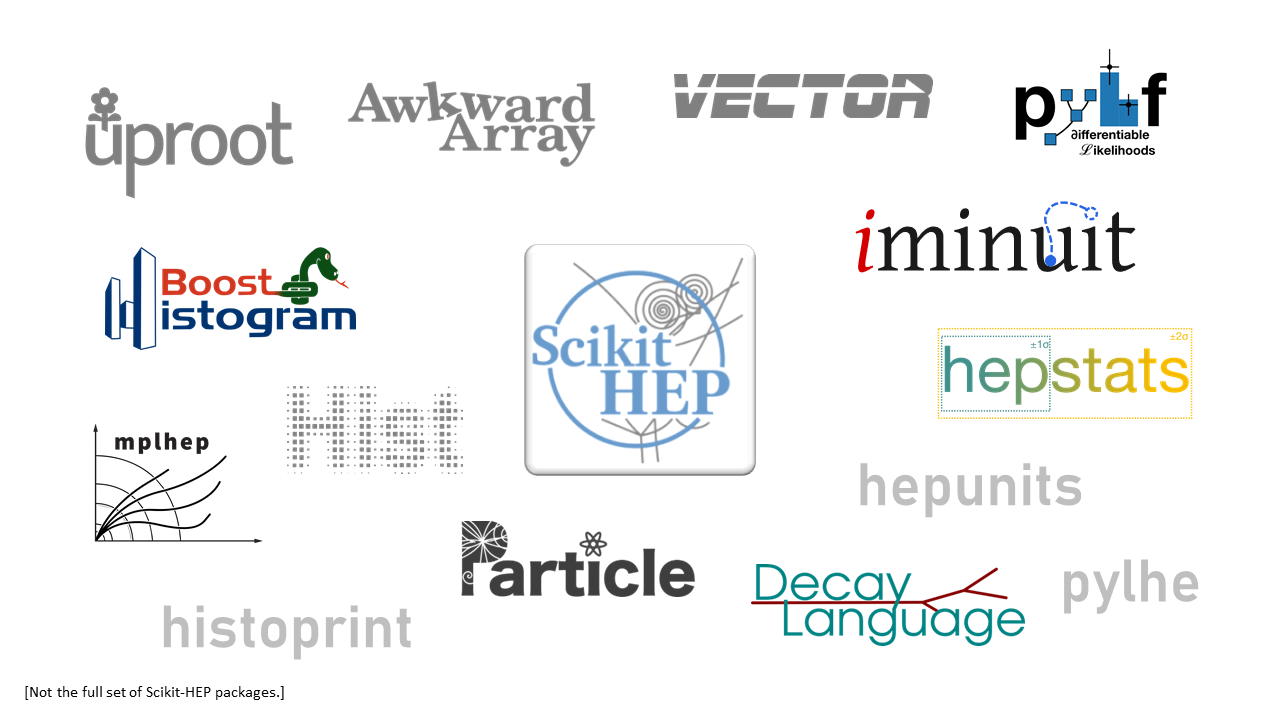 # A "whetting your appetite" mini gallery ...:
#
# A "whetting your appetite" mini gallery ...:
#
#
#  |
# 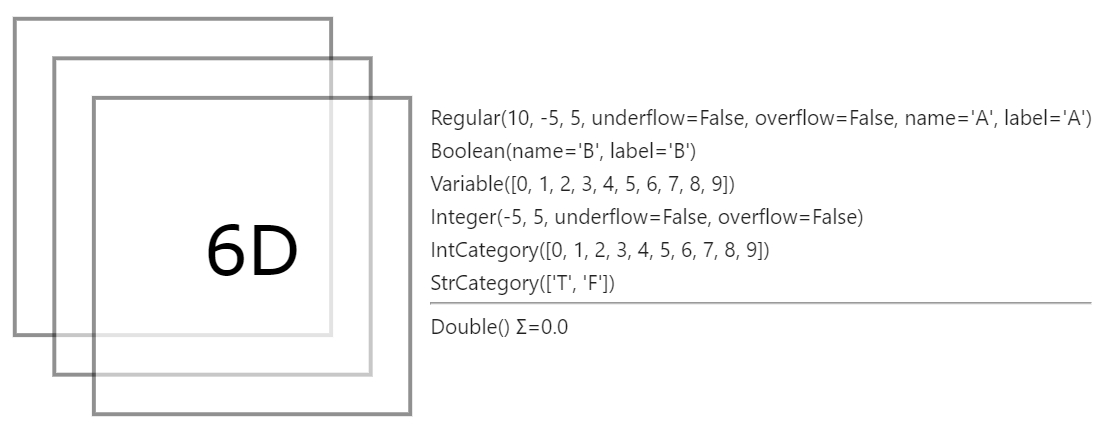 |
#
#
#
#
# 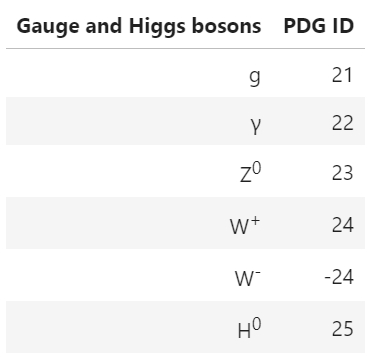 |
#  |
#
#
# #### **The scikit-hep metapackage**
#
# The project has a special package, `scikit-hep`, which is a *metapackage*. Unlike all others, which target specific topics, this metapackage simply provides an easy way to have a compatible set of project packages installed via a simple `conda install scikit-hep` (or `pip install scikit-hep`) command.
#
# The Scikit-HEP packages used in these notebooks are in fact installed via the metapackage. It is trivial to check the available versions:
# In[ ]:
import skhep
skhep.show_versions()
#
# THANK YOU
#
# to Hans Dembinski, Henry Schreiner, Jim Pivarski, Jonas Eschle and others for knowingly (or unknowingly) providing material and/or inspiration for these tutorial notebooks!
#







